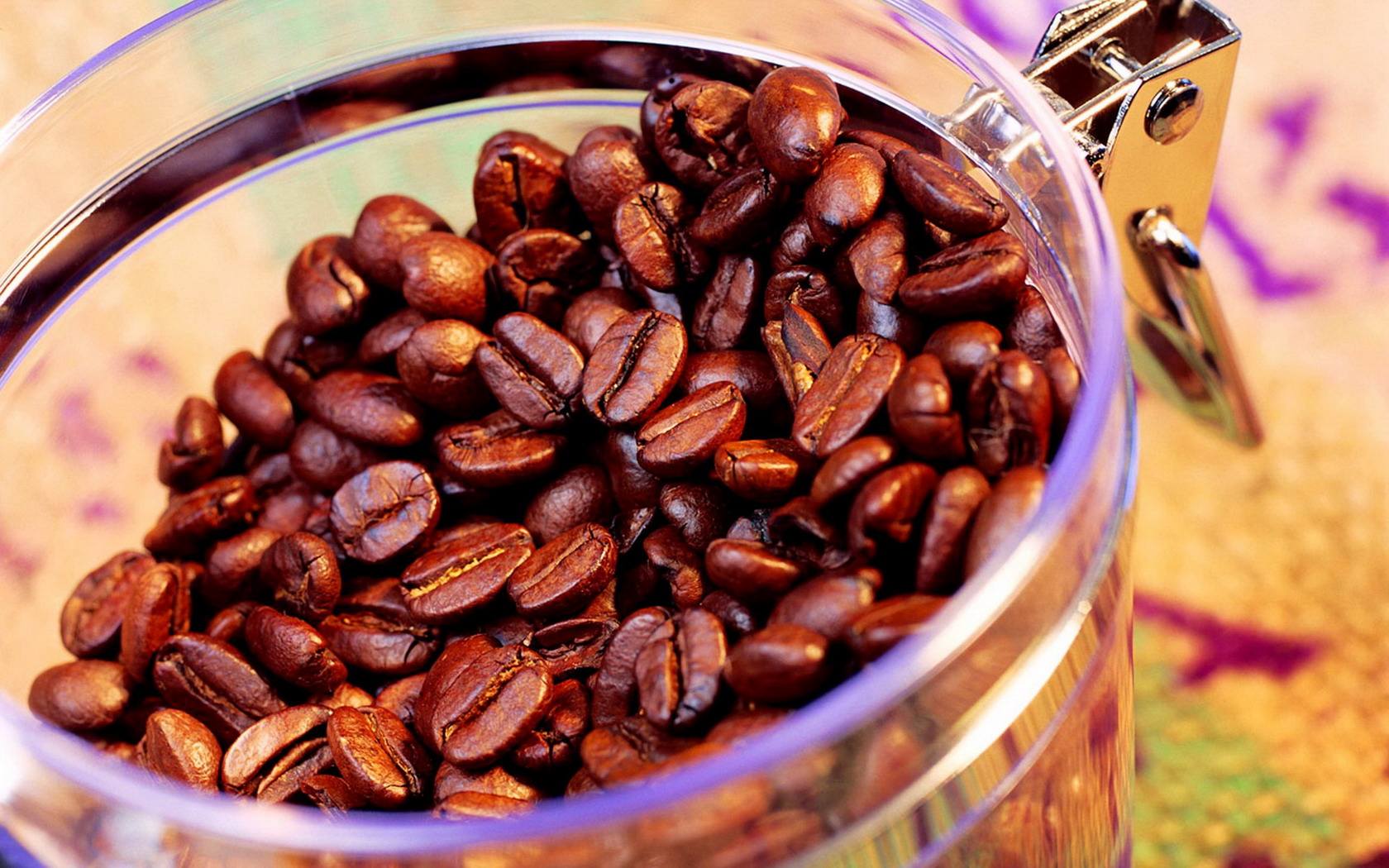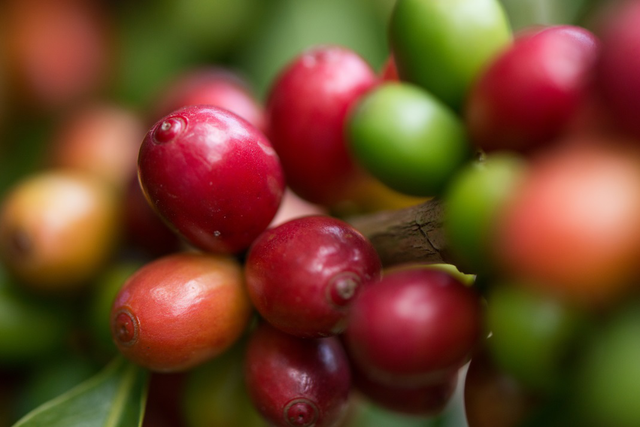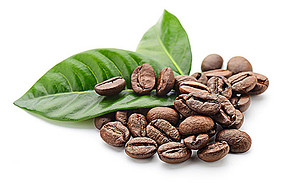The characteristics and roasting methods of Kenyan coffee
Follow the caf é (Wechat official account vdailycom) and found that Beautiful Cafe opened a small shop of its own.
The characteristics of Kenyan coffee:
People in the coffee industry regard Kenyan coffee as one of its favorite products, with wonderful and satisfying aromas, balanced acidity, well-proportioned granules and excellent fruit flavors.
Kenyan coffee grades are divided into seven grades according to the size of coffee beans and six grades according to taste. The best coffee in Kenya is bean berry coffee (PB), followed by AA++, AA+, AA, AB and so on. The fine coffee is shiny, delicious and slightly alcoholic. "Kenya AA" is particularly well received in terms of taste.
Kenyan coffee has a slightly sour, thick aroma, raw bean particles are small, green to grayish green. Kenya's coffee beans are washed Arabica species, famous for (Kenya Arabica), especially in the United Kingdom, Kenyan coffee surpassed Costa Rican coffee to become one of the most popular coffee.
Flavor: aromatic, full-bodied, with fruit flavor, rich and perfect taste
Suggested baking methods: shallow baking, medium-shallow baking
★★★: excellent

1) production
The main coffee variety cultivated in Kenya is Arabica, but in addition, other varieties of coffee beans such as Blue Mountain Coffee (Blue Mountain) and French Missionary species (French Mission) are also grown in some earlier cultivation bases. There are two harvest seasons in a year, the main harvest season is from October to December, and the early harvest season is from May to July.
At this stage, farmers play a major role in the value chain. Their task at this time is to carry out various agricultural activities such as soil preparation, fertilization, spraying, plant maintenance and harvesting. There is a great difference in the employment of agricultural workers between small tenant farmers and large enterprises at this stage. Small sharecroppers can harvest 400 kilograms of fruit per hectare (about 2.1 kilograms per tree), compared with an average of 1.76 tons of coffee beans per hectare (about 8 kilograms per tree). This is mainly due to the fact that there is a certain gap between the basic agricultural tools of sharecroppers and the employment of agricultural workers, the use of modern science and technology is less, and the cost is too high to maximize the use of fertilizer and agricultural spray.
2) processing
Processing is the second stage of the entire coffee value chain, with 90% of Kenyan coffee processed wet and the remaining 10% dry. After the harvest, coffee farmers sell the coffee fruit to partners for further processing, each of which probably has one or two wet processing plants. Among them, 90% of the wet processing is carried out in the central wet mill, and the rest are treated separately, which is very conducive to the maintenance of quality. However, the wet processing machine technology of most of the partners is slightly out of date, so the actual quality of coffee has also been affected a little and declined. Compared with neighboring countries, Kenya's wet mill costs are relatively high, which affects its competitiveness in the international market.
3) auction / marketization
After the processing of coffee beans, the value chain has come to the stage of auction or marketization. The main participants in this stage include bakeries and packaging workshops, warehouse management companies, auctioneers or related business agents. There are two types of coffee marketization mechanisms in Kenya, namely the Central auction Mechanism (Central Auction) and the Direct Marketing system (Direct Sales System). The central auction mechanism is conducted under the auspices of a specific organization, the Nairobi Coffee Exchange (Nairobi Coffee Exchange). At auctions, most marketing agents sell unroasted coffee beans to exporters after cataloging, classifying and setting reserve prices.
4) end market
a. International market (export)
After the stage of auction / marketization, the coffee value chain comes to the end market stage. At this stage, most products are exported in the form of raw coffee beans, only some are sold as processed or roasted coffee beans. As can be seen from the chart below, most of Kenya's coffee beans are sold to Europe, while Germany is the largest importer of coffee beans.
b. Domestic market
There are also many local bakeries in the Kenyan coffee industry, and there are currently about 23 coffee bakeries as the main workshops in Kenya. Major bakeries include Stevkham Enterprise,KPCU Coffee Exporters,Raki Investment,Malaiki Coffee and Tea,C Dorman,Kenya Nut Company,Mwangi Coffee,MA Pandit&Co,Bico,Cejo Investment,Cnetral Impex Enterprise and Nairobi Java House.
Kenya has a limited share of the local coffee market, because there are fewer local coffee drinkers in Kenya, so most of the coffee beans are sold abroad.
5) support the market
Some coffee industry support industries are involved and involved in the production, processing and baking of the entire value chain. The main supporters include water suppliers for agricultural irrigation and wet processing, power supply companies for production, processing and baking, and fertilizer and pesticide plants that provide fertilizer and spray during the production phase. In addition, the equipment supply and maintenance company and the agro-industrial capacity training company also played a certain role in the production process.
Important Notice :
前街咖啡 FrontStreet Coffee has moved to new addredd:
FrontStreet Coffee Address: 315,Donghua East Road,GuangZhou
Tel:020 38364473
- Prev

Kenya Coffee: Coffee Fans Full of Expectations and Surprises
Pay close attention to coffee comment (Weixin Official Accounts vdailycom ) and find that Meimei Cafe has opened its own small shop in Kenya. Agriculture has made a great contribution to GDP and local employment rate, occupying a very important part. Coffee is Kenya's second largest export trade product after tea. Kenya's main coffee bean variety is Arabica, which is rated as
- Next

Introduction to the characteristics and Flavor of main varieties of Kenyan Coffee
Following Kaiping (official Wechat account vdailycom) found that Fairview Cafe opened a small shop of its own market for Kenyan coffee: the Kenyan government takes the coffee industry extremely seriously, where it is illegal to cut down or destroy coffee trees. The buyers of Kenyan coffee are world-class high-quality coffee buyers, and no other country can grow and produce as continuously as Kenya.
Related
- Detailed explanation of Jadeite planting Land in Panamanian Jadeite Manor introduction to the grading system of Jadeite competitive bidding, Red bid, Green bid and Rose Summer
- Story of Coffee planting in Brenka region of Costa Rica Stonehenge Manor anaerobic heavy honey treatment of flavor mouth
- What's on the barrel of Blue Mountain Coffee beans?
- Can American coffee also pull flowers? How to use hot American style to pull out a good-looking pattern?
- Can you make a cold extract with coffee beans? What is the right proportion for cold-extracted coffee formula?
- Indonesian PWN Gold Mandrine Coffee Origin Features Flavor How to Chong? Mandolin coffee is American.
- A brief introduction to the flavor characteristics of Brazilian yellow bourbon coffee beans
- What is the effect of different water quality on the flavor of cold-extracted coffee? What kind of water is best for brewing coffee?
- Why do you think of Rose Summer whenever you mention Panamanian coffee?
- Introduction to the characteristics of authentic blue mountain coffee bean producing areas? What is the CIB Coffee Authority in Jamaica?

